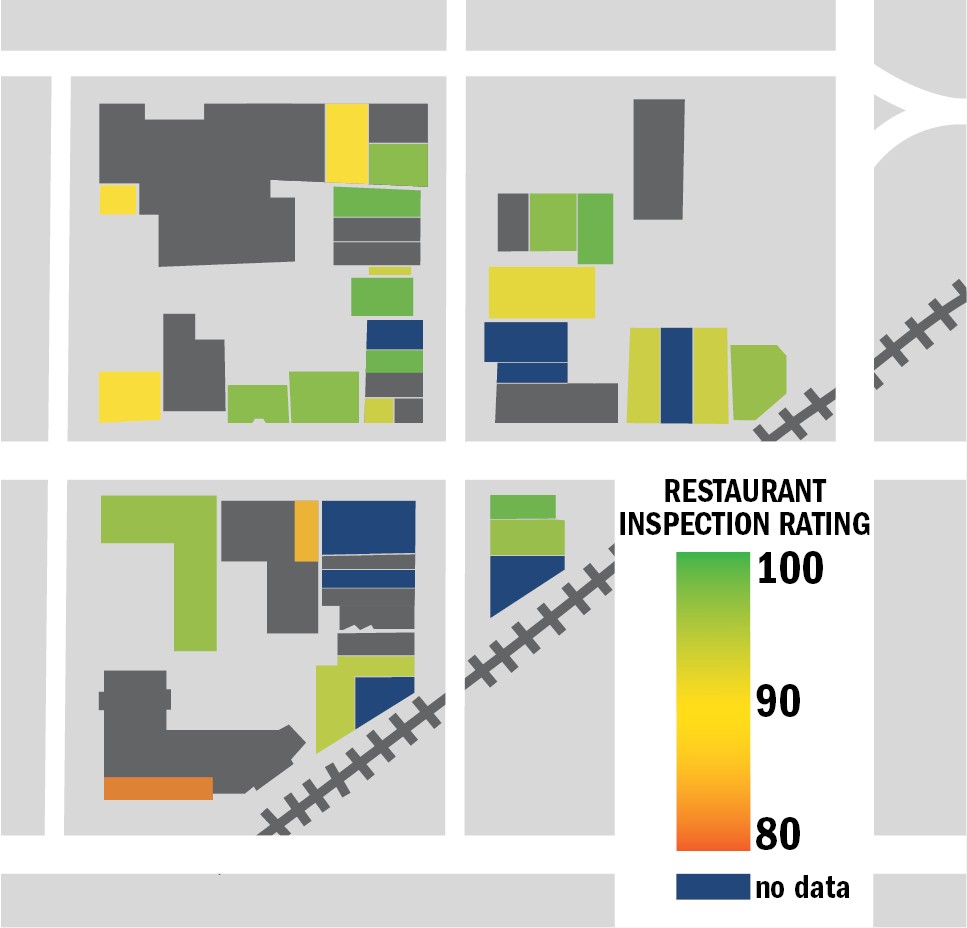Like many University of Minnesota students, Mohammed Al-Hinaai enjoys the occasional dine-in at his favorite restaurants around campus.
Al-Hinaai also puts cleanliness at the top of his priority list. Thanks to a new City of Minneapolis resource unveiled earlier this month, Al-Hinaai can now search his favorite restaurant’s health inspection records online. The new Health Inspection Lookup Tool allows anyone to look up detailed inspection reports — ranging from food safety violations to general restaurant upkeep — for city establishments.
“Because at your home you cook your food, you know how clean it is, and you [see] everything,” he said. “But here in the restaurant, we just get the food, so you know don’t know what’s happening inside.”
An analysis of Dinkytown food businesses by the Minnesota Daily showed that all shops are up to code regarding health inspections, with the exception of a few new restaurants which have not yet received an annual check-up.
Inspection reports are given a grade out of 100 points. Violations deduct between zero and four points, depending on the severity. Businesses with an inspection report below 90 is automatically subjected to a follow-up to ensure the violations are resolved.
Minneapolis Health Department inspector Logan Ebeling said the department had seen an increase in public information requests regarding inspection health.
On top of that demand, just last year the University’s Public Health school conducted a survey at the Minnesota State Fair found more than 90 percent of respondents said they wanted better access to these records.
“So by putting [the records] out there, it makes it easily accessible,” said Minneapolis environmental health community liaison Leslie Foreman, who worked on group outreach and public engagement for the project.
Before the lookup tool was available, inspection records were only available through a public records request — which could take up to a week, she said.
Second-year sociology student Saulkdi Yangh said while the city’s move is a good start, students should also have better inspection information access to University-operated food services, especially because some students rely solely on dining hall meal plans.
“I definitely feel that the University should be very clear about the food that they’re serving,” Yangh said. “It’s important to have security [at] the places that you eat … ”
The University is in a separate jurisdiction from the city when it comes to inspection and enforcement codes and is not subject to the new tool.
Food service operations at the University is contracted to private food service providers like Aramark. Aramark-operated restaurants conduct their own inspections separate from the University.
“If there’s a violation, say I notice a staff making sandwiches without washing their hands and putting gloves on first, then it’s up to the operator manager to fix that … so it doesn’t happen again,” said University Environmental Hygiene Officer Mark Rossi.
City health department officials said the new tool is only for the benefit of the public to make more informed decisions.
“Hopefully it just allows people to make their own informed decision [and] not to let us make that decision for them,” he added.








